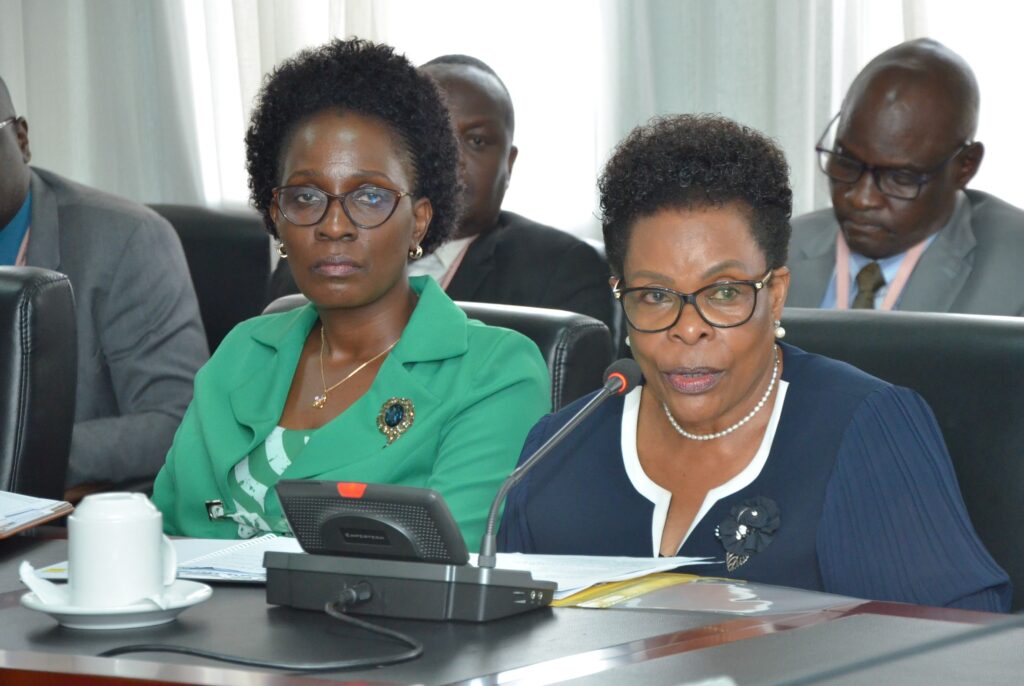On September 23rd, Inspector General of Government (IGG) Beti Olive Namisango Kamya quietly bowed out of office after President Yoweri Kaguta Museveni declined to renew her four-year contract.
Her departure, which also swept away her two deputies Patricia Okiria Ochan and Anne Twinomugisha Muhairwe, marks the end of a tumultuous chapter in Uganda’s anti-corruption watchdog, one that has been defined more by controversy than by conviction.
Kamya, who assumed office in July 2021 after taking over from Justice Irene Mulyagonja, had lobbied hard for an extension.
For months, she pursued every available avenue of persuasion, hoping to convince the appointing authority that she deserved another term.
But Museveni was unmoved, leaving her no option but to hand over office to the Director of Legal Affairs at the Inspectorate.
Her deputies had no choice but to follow suit, since they had been appointed under the same tenure and their contracts equally expired.
Their joint exit leaves a leadership vacuum at the Inspectorate at a time when public confidence in the institution is already deeply shaken.
Over the past four years, Kamya’s office has been accused of shielding powerful officials implicated in corruption. Critics argue that under her stewardship, Uganda’s war on graft was reduced to tokenism a charade in which thieves were neither punished nor prosecuted, but instead allowed to return stolen funds in installments and then rewarded with promotions.
The Agriculture Ministry scandal is a prime example.
In 2020, nine billion shillings was siphoned from Covid-19 funds through fictitious expenditures on food purchases and rehabilitation projects at Bukalasa and the Fisheries Institute.
Investigations by the Auditor General’s office and the IGG’s Special Investigations Directorate confirmed the theft, and a swoop was planned to arrest the culprits.
Yet before the operation could be executed, information was leaked, and the suspects were given the upper hand.
The then Agriculture Minister Vincent Ssempijja and his deputy Bright Rwamirama intervened, pleading with Kamya to let the matter be handled “internally.” Instead of prosecutions, a compromise was reached in which the thieves would refund the money over 28 weeks.
Years later, not only has much of the money not been recovered, but the implicated officials were promoted and transferred to the Ministry of Education.
Kamya’s office was further dogged by allegations that senior staff within the Inspectorate accepted bribes, including land in Entebbe, to kill sensitive cases.
Whistleblowers like Godfrey Odong, who first unearthed the Agriculture fraud, were sidelined, while investigators like Joram Magezi were demoted to underfunded departments.
For many, these were not the signs of an anti-graft body but of an institution compromised from within.
It is against this backdrop that Kamya’s exit takes on deeper significance.
The timing of the departure was not lost on observers: as her contract neared expiry, reports surfaced of growing rivalries within the Inspectorate itself.
Her deputies, Okiria and Twinomugisha, were said to have developed strong interest in succeeding her.
Their ambitions were fueled by President Museveni’s public praise of Ms Anne Twinomugisha Muhairwe, whom he once described as “incorruptible.” Many interpreted this as a signal from the appointing authority that Anne would be elevated once Kamya’s contract ran out.
The rivalry reached fever pitch, with speculation rife that the Inspectorate had been reduced to a battleground for succession rather than a fortress of accountability.
Yet in the end, Museveni has opted not to renew any of their contracts, leaving all three out in the cold.
The IGG spokesperson, Munini Munira, confirmed the departures, noting that her bosses could not stay in office since any action taken beyond September 23rd would lack legitimacy.
It was a clear acknowledgment that the Inspectorate, already embattled, could not afford a leadership crisis compounded by expired contracts.
For Kamya personally, the curtain falls on a career marked by political reinvention.
Once a vocal opposition politician, she crossed to the ruling NRM before landing at the Inspectorate.
Supporters argued that her outsider status gave her the independence needed to shake up the institution. But the reality was far less flattering: her four years will likely be remembered as the period when Uganda’s anti-corruption fight suffered one of its deepest credibility crises.
That crisis is not merely about perception. The numbers speak for themselves. Billions of shillings flagged in corruption scandals have gone unrecovered.
Her exit leaves questions that go beyond personalities. Who will Museveni appoint to restore public trust in the IGG’s office? Can the institution recover from the perception that it has become a refuge for the powerful rather than a check on their abuses? And perhaps most importantly, will the next IGG have the independence and political will to confront the rot in government, or will the cycle of impunity continue under new management?
The Inspectorate remains leaderless, with only its technical staff keeping the machinery ticking. The future of Uganda’s anti-corruption watchdog hangs in the balance, awaiting a new head.
